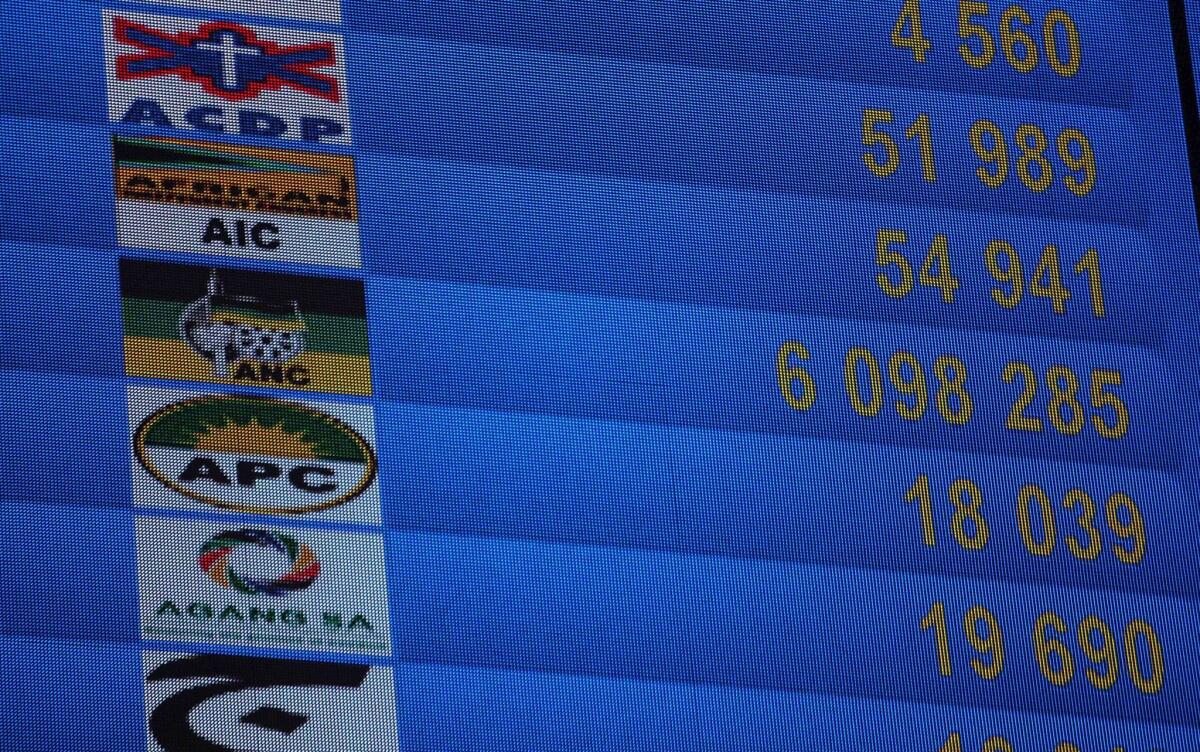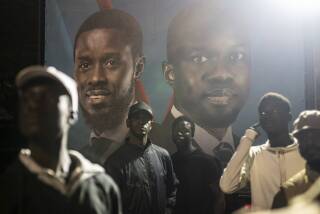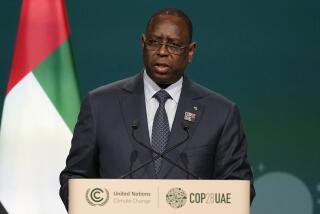South Africa’s ANC poised to return to power; ballot questions arise

South Africa’s ruling African National Congress was headed for victory Thursday in parliamentary elections and President Jacob Zuma is likely to remain in office despite voter disenchantment over corruption and high unemployment.
The lower house of parliament selects the nation’s president, making it probable that Zuma will continue in the post.
As a beaming Zuma arrived at the national voting tally center in Pretoria to greet people late Thursday, photographs of ballots dumped in black plastic garbage bags in the city circulated on social media, many marked in favor of the main opposition party, the Democratic Alliance.
Officials with the Independent Electoral Commission said the allegations would be investigated but cautioned that the votes might already have been counted before they were dumped.
The votes were for the legislature in Gauteng province, where results were dribbling in Thursday, but by themselves wouldn’t have been enough to change the result. Mmusi Maimane, the Democratic Alliance candidate for Gauteng premier, said the discovery of the dumped votes raised questions about the integrity of the process.
He said all of the dumped ballots were cast for his party, which suspects that they were not counted.
“If we talk about free and fair elections, we mustn’t lose track of the fact that all ballots must be counted,” Maimane said.
The party reported the issue to the election commission and planned to file a formal complaint, he said.
Other photos emerged of ballot boxes gone astray, one wedged between two rocks and another at a house in Alexandra township.
The Democratic Alliance retained control of Western Cape province, but its leader, Helen Zille, acknowledged Thursday that the party hadn’t managed to push the ANC below 60% of the national vote. She said the DA didn’t achieve its objective of nudging the ruling party out of power in Gauteng, the nation’s economic powerhouse and home to Johannesburg and Pretoria, nor in any other province.
With ballots at 85% of polling stations counted, the ANC had received 63% of the vote, a decline from about 66% in the 2009 election. The DA had 22%, up from about 17%.
Analysts said the DA failed to make major inroads into the ANC’s bedrock of support among black South African township dwellers, who still identify with the party of the country’s first black president, the late Nelson Mandela.
Despite scandals over corruption, dissatisfaction over the delivery of government services and an unpopular leader, the ANC commanded an overwhelming mandate, still widely supported by blacks as the party that freed them from apartheid.
The new Economic Freedom Fighters, a radical party pushing for nationalization of banks, mines and land, had about 5% of the vote. The EFF, led by expelled former ANC youth leader Julius Malema, appears to have picked up support among the disaffected young unemployed.
The biggest losers appeared to be smaller parties such as the Congress of the People, which won 7.5% in the last election but this time came away with less than 1%.
Voter turnout also appeared to have slumped despite a comment Wednesday from election commission chief Pansy Tlakula that participation was “extremely high.”
Voter turnout was 72%, compared with 77% in 2009 and 88% a decade earlier -- a decline seen as a reflection of disillusionment among some voters who are unwilling to back the ANC but reluctant to support the DA, still perceived by many as a predominantly white party.
The overall number of voters, however, was the highest ever, according to election officials.
More to Read
Start your day right
Sign up for Essential California for news, features and recommendations from the L.A. Times and beyond in your inbox six days a week.
You may occasionally receive promotional content from the Los Angeles Times.






